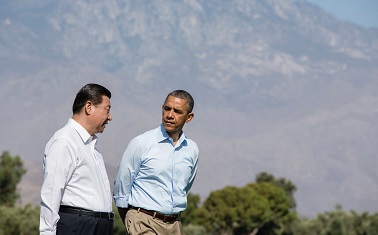The world is constantly and almost instantaneously transforming right before our eyes. Given the complexity and interconnectedness of resulting emerging challenges it is advisable for policymakers to attempt to get ahead of the curve. This is exactly what the World Economic Forum’s “Outlook on the Global Agenda 2015” is envisioned to offer to a broad… Keep reading →
Carbon Emissions
Rising Pollution in the Developing World, Is India a Climate Protection ‘Wild Card’?
By Roman KilisekSign up and get Breaking Energy news in your inbox.
We will never sell or share your information without your consent. See our privacy policy.Energy News Roundup: Carbon Neutrality Deadline, Methane Emissions Control Rule Finalized & China Moves to Curb Coal
By Jared AndersonThe UN Environment Program released a report ahead of the upcoming international climate meetings in Lima, Peru that finds global carbon neutrality should be attained by mid-to-late century. “Countries are giving increasing attention to where they realistically need to be by 2025, 2030 and beyond in order to limit a global temperature rise to below… Keep reading →
Energy News Roundup: China is Not Biggest Climate Challenge, Opec Wrestles with Supply Cut & KXL Vote Today
By Jared AndersonThe energy poverty issue is being drawn into stark relief in India, where the government is pursuing an aggressive coal expansion strategy as it seeks to bring electricity to the over 300 million people without. The New York Times reports air quality in cities is worse than China, rising seas will impact the country disproportionately… Keep reading →
US-China Climate Pact a “Game Changer” for Clean Energy
By Environmental Defense Fund Energy Exchange BlogFor the first time, the world’s two largest greenhouse gas emitters have pledged to reduce carbon pollution. This is a game changer, writes Fred Krupp, president of Environmental Defense Fund, in a Wall Street Journal op-ed piece. The agreement between the United States and China will be a giant boost for clean-energy markets. Having the world’s two largest… Keep reading →
Keystone Pipeline, Carbon Emission Rules, Natural-Gas Exports Expected to Receive Attention in GOP-Controlled Senate. Wall Street Journal: Next year’s GOP-controlled Senate is expected to come out strongly against President Barack Obama ’s most consequential energy and environment policies, with the likely majority leader, Mitch McConnell of Kentucky, vowing to hold votes on the Keystone XL pipeline and legislation to pare… Keep reading →
“I’m not a scientist,” has emerged as go-to republican messaging on climate change in the run-up to midterm elections. Essentially, the response means “I’m not going to talk about this issue,” but climate change has already come up in several political debates around the US. “It’s got to be the dumbest answer I’ve ever heard,”… Keep reading →
The 10 largest power plants in the world – in terms of total installed capacity – are all massive hydro or nuclear installations, with the top 5 located in China and South America. The fact that these are all zero-carbon power sources highlights the challenge of meeting climate-change goals without nuclear power. It’s been said… Keep reading →
NY Green Bank’s initial transactions will produce more than $800M in investments supporting clean energy projects that would annually avoid 575,000 tons of carbon emissions. On October 22, 2014, New York Governor Andrew M. Cuomo announced the NY Green Bank’s first seven transactions, which – supported and agreed to in principle – will produce more… Keep reading →
Energy Quote of the Day: ‘Natural Gas is Often Described as a Bridge Fuel…How Long Should that Bridge Be?’
By Roman KilisekA new report released by the Canadian Pembina Institute and the Pacific Institute for Climate Solutions looks at British Columbia’s (B.C.) liquefied natural gas (LNG) strategy to serve the lucrative Asian gas market through the prism of global climate change in a carbon-constrained world. “Natural gas is often described as a bridge fuel. The question… Keep reading →
Energy Quote of the Day: ‘Highly Unlikely that Global Carbon-dioxide Emissions Will Fall Anytime Soon’
By Jared AndersonThe main reason carbon emissions are unlikely to decrease in the short term? Coal. Leave it to Manhattan Institute Senior Fellow Robert Bryce to rain on the renewable energy parade. It’s not that he is anti-renewable energy, or even pro coal, but his analysis starkly demonstrates current energy fundamentals and projected trends, which are heavily… Keep reading →










